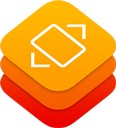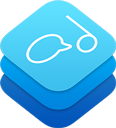Developers
Our next big update to forScore is coming soon, but we wanted to take a moment today to announce something a little different: a new Developer initiative that we’ve been working on over the past few months and a set of forScore SDKs.
SDKs, or Software Development Kits, allow developers to share functionality without revealing their code (we use Dropbox’s SDK, for instance, to allow our users to share files with their cloud storage service). This creates a safe way for developers to collaborate without worrying about their code being altered or exploited. When we began to consider creating our own SDKs, we identified three unique situations where customers might want this kind of collaboration: remote control, publishing, and sharing.
 Cue, forScore’s remote control protocol, has proven to be a big hit with musicians. It allows one person to use forScore just as they normally would, and allows other nearby forScore users to follow along automatically. It’s a great feature, but it’s just one implementation of a common idea. Several music readers have similar features, but none of them work together, and our new CueKit SDK aims to fix that. With it, other apps can connect to forScore and send or receive program changes, page turns, and more.
Cue, forScore’s remote control protocol, has proven to be a big hit with musicians. It allows one person to use forScore just as they normally would, and allows other nearby forScore users to follow along automatically. It’s a great feature, but it’s just one implementation of a common idea. Several music readers have similar features, but none of them work together, and our new CueKit SDK aims to fix that. With it, other apps can connect to forScore and send or receive program changes, page turns, and more.
 ScoreKit, our second SDK, lets other apps export PDF files using forScore’s 4SC format, so they can share their scores with additional metadata and annotations. Music composition apps might use this tool to help their musicians transition from creating to performing their own music. ScoreKit can also read 4SC files sent from forScore, with one important rule: any app that can import 4SC files must also export them. After all, we want to improve collaboration, not give our competitors a one-way advantage.
ScoreKit, our second SDK, lets other apps export PDF files using forScore’s 4SC format, so they can share their scores with additional metadata and annotations. Music composition apps might use this tool to help their musicians transition from creating to performing their own music. ScoreKit can also read 4SC files sent from forScore, with one important rule: any app that can import 4SC files must also export them. After all, we want to improve collaboration, not give our competitors a one-way advantage.
We work hard to make forScore the best app it can be, but we know that people have many choices and we want them to be able to use the best app for them without feeling locked in or left out. We know this is just a first step, but we’re very excited to continue this initiative and find other ways we can work with our colleagues to elevate the ecosystem for all musicians. If you’re using an app that you think could benefit from one of our SDKs, let their creators know! Both of our SDKs are completely free, so there’s no reason for them not to take a look.